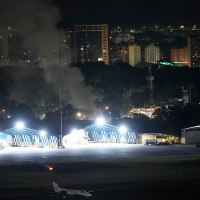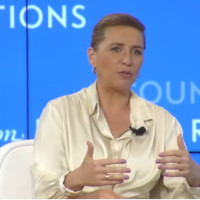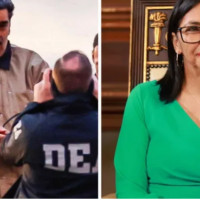- Wednesday, 7 January 2026
Countries at climate meet under pressure with no finance deal made
Baku, Azerbaijan, Nov. 23: Countries at the United Nations climate summit amped up the pressure on themselves Friday by entering the last scheduled day of talks with no visible progress on their chief goals.
From the start, COP29 has been about climate finance — money that wealthy nations are obligated to pay to developing countries to cover damages resulting from extreme weather and to help those nations adapt to a warming planet. Experts put the figure at $1 trillion or more, but draft texts that emerged Thursday after nearly two weeks of talks angered the developing world by essentially leaving blank the financial commitment.
The talks often run into overtime as wealthier nations are pressed to pay for impacts caused largely by their emissions from centuries of burning fossil fuels. The late finish also adds pressure on Azerbaijan, the oil-rich nation presiding over this year's COP, or Conference of Parties.
In a statement late Thursday, the presidency struck an optimistic tone, saying the outlines of a financial package “are starting to take shape” and promised new draft texts on Friday.
Negotiators, observers and civil society organization representatives waited for a new draft text to be released on Friday with anticipation.
“We need a substantial number to come from here," said Ana Toni, Brazil’s National Secretary of Climate Change. Along with the U.K.'s energy minister Ed Miliband, Toni is one of the ministers in charge of an overall deal. “It’s just not the total amount is what’s the path to get to the number that all of us know that we need to achieve."
Beyond an overall figure for climate finance, negotiators need to agree what form the money comes in — whether its grants or loans — and who'll be footing the bill.
Switzerland Environment Minister Albert Rösti said it was important that the climate finance number is realistic.
“I think a deal with a high number that will never be realistic, that will never be paid… will be much worse than no deal,” he said. “The disappointment will arrive more soon that we can imagine.”
Western countries face practical budget restrictions and their commitments are voluntary, he said. The finance number needs to be higher than the $100 billion but it can’t be too high.
“Our voice will be there to have a success, but it must be realistic in the end,” he said.
Observers were vocal in their frustration at waiting for a new draft deal.
"This is the worst COP in recent memory," said Mohamed Adow of the think tank Power Shift Africa.
“The way this COP is going, developing countries actually being forced and held hostage to accept a deal that isn’t going to add up to get the job done to help put the world on a safe pathway," he said. “No deal is better than a bad deal,” said Harjeet Singh of the climate advocacy group, Fossil Fuel Non Proliferation Treaty.
Singh said the key bottleneck is rich countries’ reluctance to say how much they are willing to pay for countries to transition away from fossil fuels and toward clean energy, adapt to the drought, storms an extreme heat and pay for losses and damages caused by climate change.
Independent experts put the figure needed at $1 trillion per year.(AP)
















